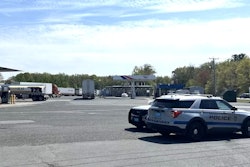In the aftermath of President Donald Trump's executive order mandating boosted enforcement of English language proficiency for all truck drivers in the U.S., a smattering of reports of state law enforcement bringing the hammer down on drivers went around on social media.
But the executive order didn't ask for an immediate 180-degree pivot on English language proficiency (ELP). It gave the Federal Motor Carrier Safety Administration 60 days to "issue new guidance to FMCSA and enforcement personnel" making clear that the "out-of-service criteria are revised such that a violation of the English language proficiency requirement results in the driver being placed out-of-service."
[Related: Trump DOT 'ELP mandate' could boost rates 15%: Analysis]
FMCSA hasn't yet issued any such guidance, and still has more than a month to do so. The Commercial Vehicle Safety Alliance voted to return ELP to its status as an out-of-service (OOS) violation, effective June 25.
Yet that hasn't slowed the pace of industry accounts of ELP enforcement. In March, one driver's viral video claimed the state of Arkansas was administering roadside reading and writing tests, and fining the drivers who failed $5,000, then hauling them off in handcuffs. Arkansas State Police and Arkansas Highway Police both denied that.

[Related: Arkansas police testing English skills at roadside? Social media says yes, but ...]
Weeks later Arkansas did pass a law requiring ELP of drivers and fines of $500 should they be found in violation. That's in force now, yet it's not an OOS violation.
Following the executive order, Overdrive has encountered three other claims of drivers being placed OOS for ELP violations.
The first came out of Wyoming, where a company truck was, according to social media, placed OOS for an ELP violation at the Cheyenne Port of Entry. Sergeant Jason Roascio, a public information officer at Wyoming Highway Patrol, denied that ever happened.
"We are not aware of an instance where a commercial vehicle was towed solely due to a driver's lack of English proficiency at the Cheyenne Port of Entry," the Sergeant said. "Our agency is currently enforcing FMCSR 391.11, which includes the requirement for drivers to be able to communicate in English; however, it is important to note that this specific violation is not currently classified as an out-of-service condition under the CVSA criteria."
When found, such violations are "treated in the same manner as any other regulatory infraction," he added. An ELP violation "does not, in itself, result in a driver being placed out of service."
In other words, no change since the executive order.
A broker then reported they had booked loads with carriers that reported two drivers stopped on I-70 for ELP checks. The broker acknowledged that, sometimes, carriers might make an excuse for letting a load go (perhaps due to finding a better load or having some equipment failure). "Usually a carrier will send some stupid receipt" for a made-up equipment failure, the broker said. In this case, though, he found the reports of ELP enforcement credible because he saw, with tracking, the loaded carrier turn around and head back.
The dispatcher handling the load "was telling me the truck stopped on I-70 and was told to bring the truck back to the yard in Denver," and that the police said "if we see you driving again we’ll fine you $500."
Trooper Sherri Mendez with the Colorado State Patrol Public Affairs Office denied checking for ELP and found it more likely this was a chain law violation (chains are required to be carried by all commercial truckers over certain passes September 1 through May 31 every year).
"The Patrol does not conduct checkpoints on I-70 to check for ELP of drivers," Mendez said. "We do conduct checkpoints on I-70 for other CMV enforcement-related activities." She noted recent weekly I-70 checkpoints for chains. She added that chain law violations do in fact come with a $500 fine.
CSP troopers and port of entry officers "have the discretion to document ELP violations as part of their inspection reports based on the totality of circumstances," said Menedez. As in Wyoming, "currently, an ELP violation alone doesn't qualify for OOS."
Yet another broker reported a driver placed OOS in Mississippi for lacking ELP. Bailey Martin, media and public relations specialist at the Mississippi Department of Public Safety, was asked three times if the state placed drivers OOS for ELP violations. Martin did not directly respond to the questions.
Instead, she offered this summary of her state's response to the executive order: "We are currently in the process of reevaluating our approach to these specific situations in light of President Trump’s new executive order," she wrote. "We are working closely with the Federal Motor Carrier Safety Administration (FMCSA) and the American Association of Motor Vehicle Administrators (AAMVA) to develop updated policies and procedures for our law enforcement officers to follow."
Florida confirmed an approach to the other states'. ELP "is not currently an out-of-service violation based on the North American Standard Out of Service Criteria," wrote Florida Highway Safety and Motor Vehicles Public Information Officer Jim Beauford.
Beauford went on to give some likely helpful advice to the brokers out there collecting second-hand stories: "If you have a specific Driver/Vehicle Examination Report that placed a driver out-of-service for this, I would be happy to research it for you."
If you haven't already taken the Overdrive survey around the Trump ELP executive order via prior coverage, weigh in below:











